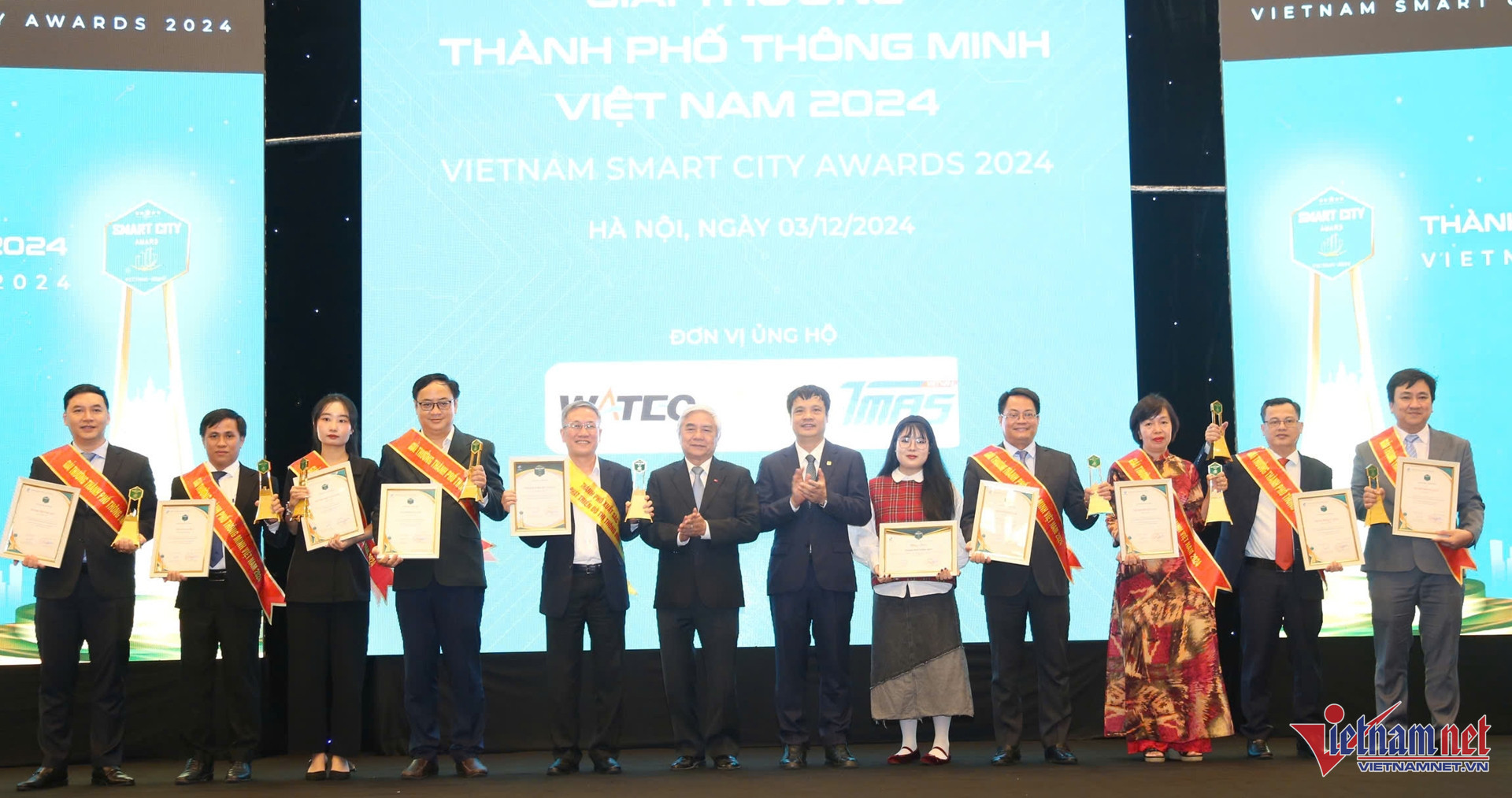
Nguyen Quan, former Minister of Science and Technology and Chairman of the Awards Council, praised the high quality of this year’s nominations, which were evaluated based on criteria such as intelligence, sustainability, and innovation.
A total of 70 entries were received, resulting in 19 awards: 10 for cities and 9 for outstanding technological solutions contributing to smart city construction. Additionally, Hong Ngu in Dong Thap Province received special recognition for its development efforts.
Da Nang continued its exemplary performance in smart city initiatives, earning accolades in three subcategories: Smart city management and operations, Innovation-driven startup-friendly city, Smart and sustainable environmental management.
With 65% of public service applications processed entirely online - nearly four times the national average - Da Nang has become a model for efficient and accessible digital governance.
The city also leads in environmental monitoring with 36 real-time stations connected to mobile devices. Additionally, Da Nang has emerged as a vibrant hub for startups, with nearly 9,000 new businesses established between 2022 and 2023.
Five other cities were also honored in the urban management category:
Hanoi received awards for its advancements in public services and intelligent infrastructure, boasting 99.99% activation of digital identification accounts via the VNeID app. The city has achieved 100% 4G and fiber-optic coverage and plans to install 2,000 5G stations by the end of 2024.
Ho Chi Minh City, Thu Duc, and Tay Ninh were recognized for their efforts in expanding smart ecosystems and integrating advanced technologies to serve their combined population of over 11 million.
Cao Lanh, a first-time participant, was named "Smart Education City" for successfully deploying digital management platforms across all educational institutions and achieving over 90% online administrative work.
VINASA Chairman Nguyen Van Khoa emphasized the transformative role of technology in enhancing urban life. “Major cities like Da Nang, Hanoi, and Ho Chi Minh City are setting ambitious goals tied to sustainability and citizen well-being as part of their smart city visions,” he noted.
Da Nang’s continued leadership reflects Vietnam’s broader commitment to building intelligent, sustainable cities that harness innovation to meet future challenges.
Van Anh